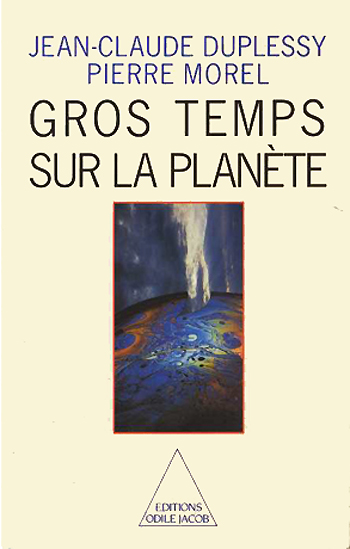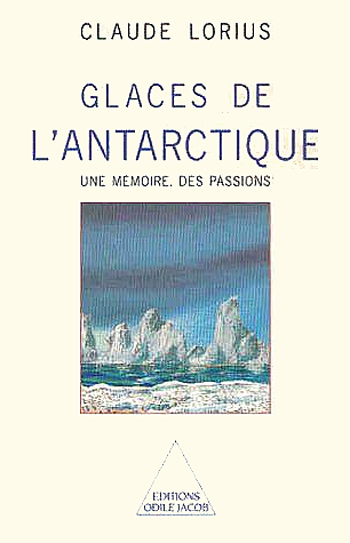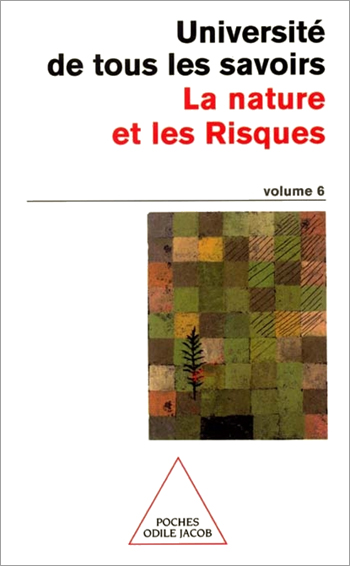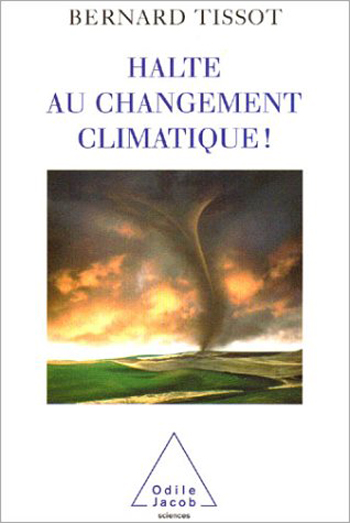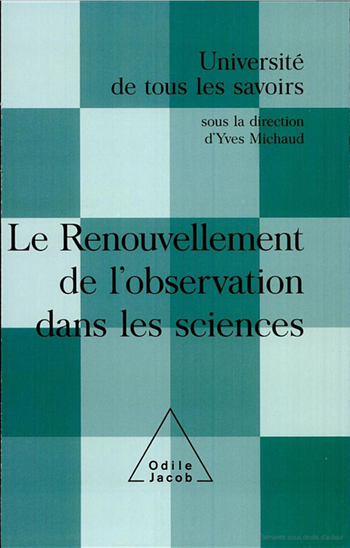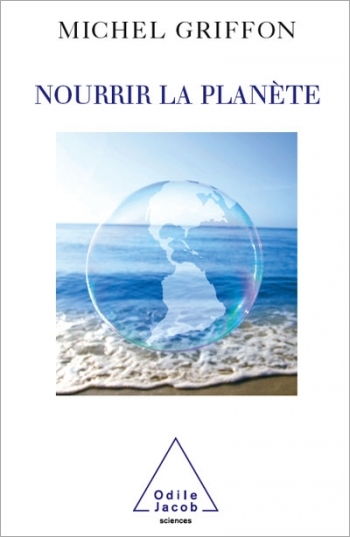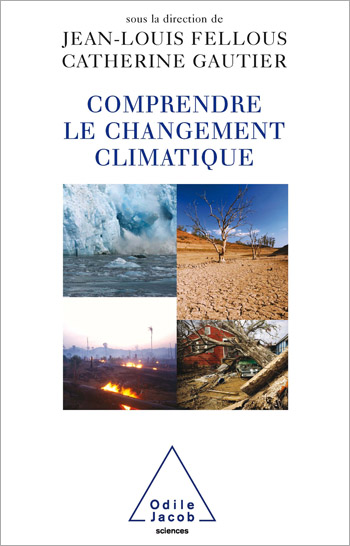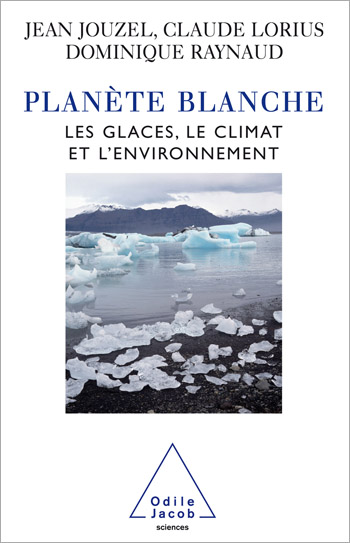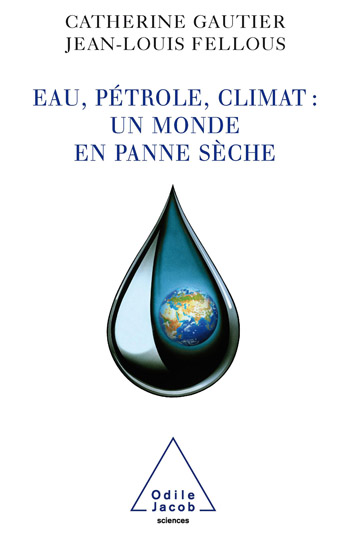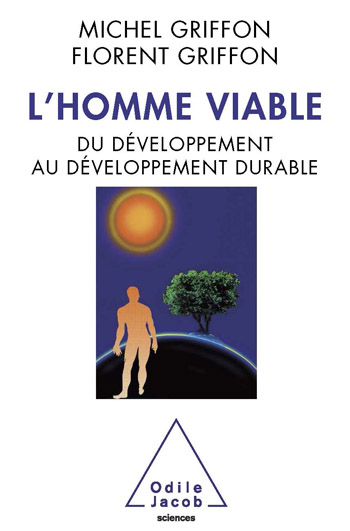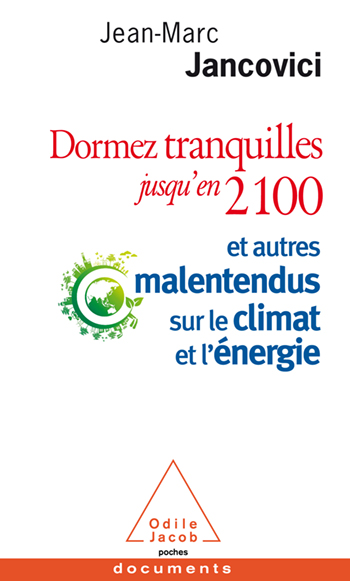Environment, Sustainable Development All books

Robert Barbault
Whales, Bacteria and Man
The most prodigious mystery of life might well be in the means it has used to create so much diversity with so little matter. However, taking the risk of destroying the most precious ecosystems, Man inflicts to Nature deforestation, pollution, sea walls and many other acts of violence. This book explores this profusion of life of which human beings are one of the components as well as one of its pivots.
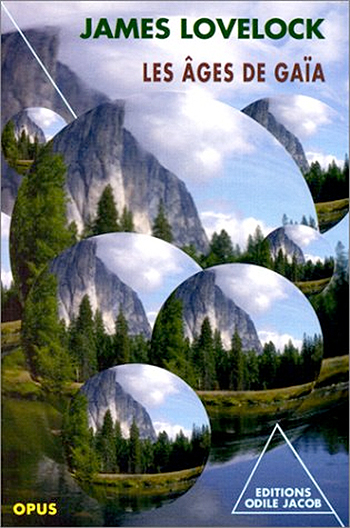
James Lovelock
The Ages of Gaia A Biography of Our Living Earth
The fascinating, controversial and most-worshipped hypothesis of ecologists - that of considering the Earth as the biggest living organism, referred to as Gaïa. It is here discussed by its inventor in person, who shows us that if our planet hasn't always had the same face, it's because there have been several ages corresponding to the predominance of very different species. In three centuries, humanity has wrought more modifications to the face of Gaïa than natural evolution did in millions of years. Although he does not doubt that the Earth, today turned completely upside-down by industrial activities, will find a new equilibrium, he does suppose that it could at the price of the disappearance of man, whose reign represents only one of the ages of Gaïa. Born in 1919, James Lovelock is the author of The Gaïa Hypothesis, a book which shook up the scientific world in the beginning of the seventies and met with great public acclaim.
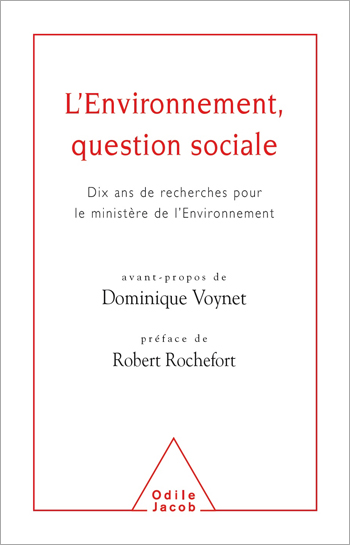
Robert Rochefort, Dominique Voynet
The Environment - A Social Question The Result of Ten Years of Research for the Environmental Ministry
This book collects 31 contributions from sociologists, legal experts, economists, and philosophers. All of these reflections point to two major motifs: that of a durable association between economy and ecology, and that of the principle of precaution necessary in and for future generations.
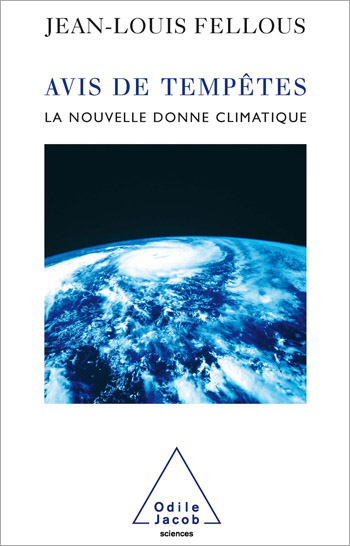
Jean-Louis Fellous
Tempest Warning The New Climatic Order
Is it true that we are heading toward global warming? And if so, what is the time frame? What will be the consequences on our lives and those of our children and grandchildren? This book will help readers understand the physical phenomena that make up the Earths climate, as well as the possible consequences of the natural and human alterations which have been inflicted on it. It also makes a plea for a concerted effort on a global scale. Jean-Louis Fellous currently heads ocean exploration for Ifremer (Institut français de recherche pour lexploitation de la mer).
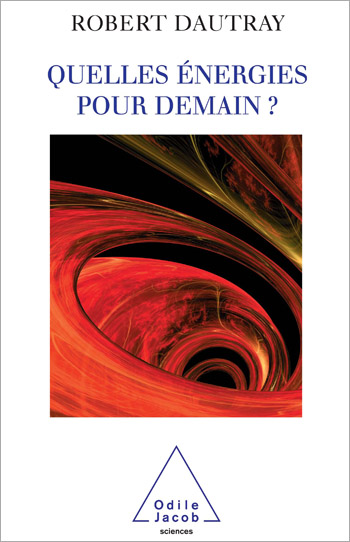
Robert Dautray
Quelles énergies pour demain ?
If there is such a thing as a French exception, it is in matters of energy. Lacking natural energy resources, France has developed a vast electro-nuclear programme which not only guarantees the country's political independence but also produces budget surpluses. Since the existing electro-nuclear equipment is not everlasting, and must thus be renewed, the question of the total dependence on nuclear energy has arisen once again. This book, by one of the most influential French scientists of the post-war period, is an in-depth analysis of the country's energy system and its problems, and the prospects for future development. The author begins by an examination of production methods by major categories (oil and natural gas, coal, hydraulic energy, solar energy, biomass, nuclear energy, geothermal energy, wind, renewable energy, bioenergy, thermonuclear energy). He then describes the role that energy plays in our society, and how society reacts to energy problems. He concludes that present and future citizen-consumers should be placed at the centre of all discussions about energy methods, that consumers should be satisfied and respected and that their opinions should be considered. But this, he says, is exactly the opposite of what has happened up to now. The last part of the book, which deals with scientific and technical research, tries to answer the questions: What should be done? What actions should be undertaken? Time is running out and irreparable harm is being done to the environment. How much time is left to discover and develop the new procedures that will enable us to save what may still be salvaged? As was amply illustrated by the heatwave of 2003, the environment remains a crucial issue. In this important book, the author has had the courage to urge scientists and experts to step out of their ivory tower, to meet with citizens, and to provide for their needs. And he takes the risk of outlining some highly specific measures to be undertaken in the next ten years. Robert Dautray is an engineer and physicist at the French Atomic Energy Commission and a member of the Academy of Sciences.
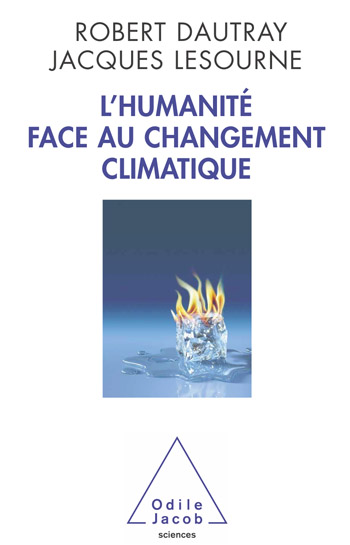
Robert Dautray, Jacques Lesourne
Humanity and the Challenge of Climate Change
A thorough examination of current scientific data concerning the evolution of climate change and related phenomena.

Bernard Besson
Greenland
“With an apocalyptic roar, Greenland’s Lauge Koch Kyst region had broken off from the mainland...
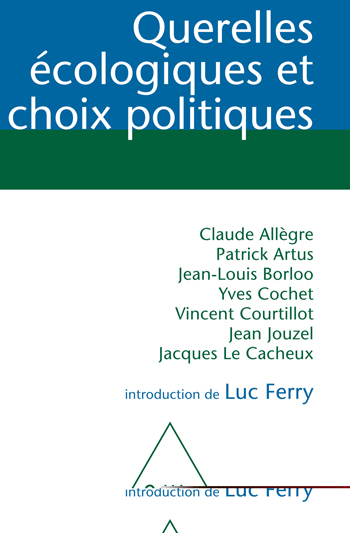
Claude Allègre, Patrick Artus, Jean-Louis Borloo, Yves Cochet, Vincent Courtillot, Jean Jouzel, Jacques Le Cacheux
Ecological quarrels and political choices
Polemics over global warming, the security of nuclear power plants after Fukushima, the depletion of reserves of non-renewable raw materials continue to fuel public concern without succeeding in establishing shared objective representations...
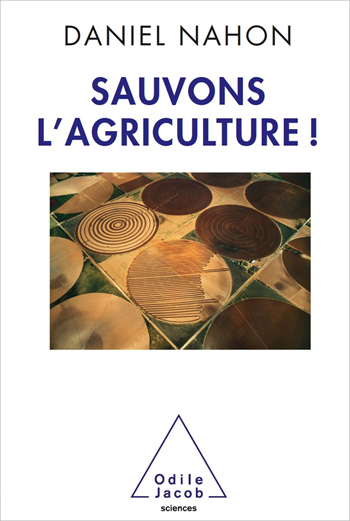
Daniel Nahon
How to Save Agriculture
Only a radical transformation of agriculture will enable us to feed all of humankind
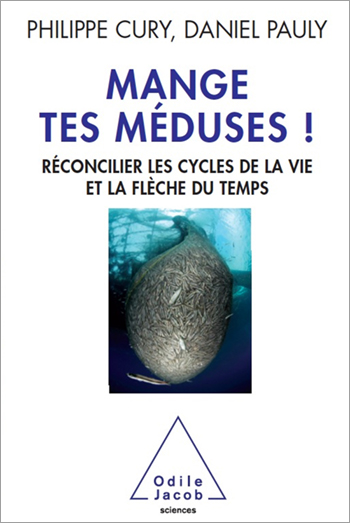
Philippe Cury, Daniel Pauly
Eat Your Jellyfish! Human Impact on Nature
An uncompromising picture of overexploitation, especially of marine resources. Examples of certain actions that have been successfully undertaken show (perhaps) that all has not yet been lost.
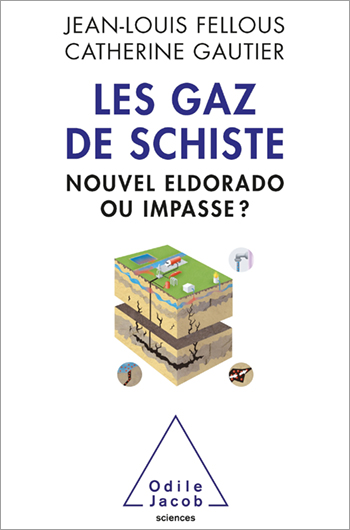
Jean-Louis Fellous, Catherine Gautier
The Gazs Shale New Eldorado or Impasse ?
Global problems related to the interaction of humans with their environment are multiplying: climatic upheaval, oil crisis, energy policies that are too lenient on carbon emissions
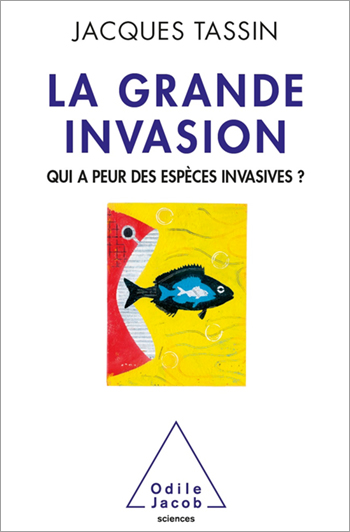
Jacques Tassin
On the Invasion of Species
Invasive species are not necessarily harmful. But they need to be managed and mastered.
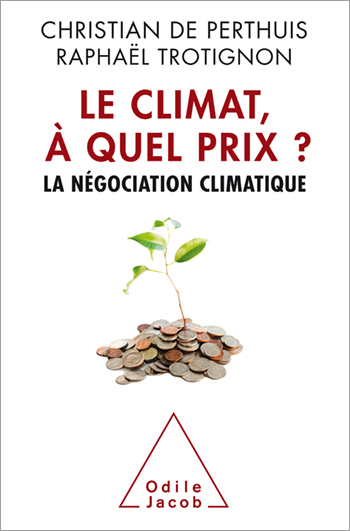
Christian de Perthuis, Raphaël Trotignon
Climat, how much ? Climate Negotiations
Global warming: understanding, anticipating, taking action
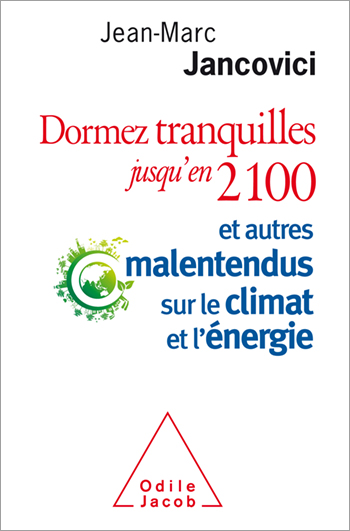
Jean-Marc Jancovici
Quiet sleep until 2100 and others Misunderstandings about the Climate, the Economy, Politics and the Environment
A brilliantly striking demonstration of the environment’s central role in the global economy
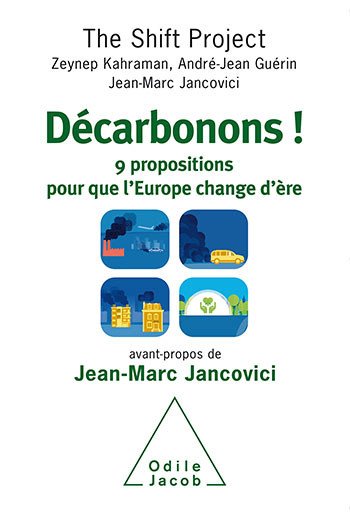
The Shift Project, Zeynep Kahraman, André-Jean Guérin, Jean-Marc Jancovici
Let's De-Carbonize Europe! Nine propositions for Europe can move on
Hulot’s Pact sold 100,000 copies. How will Jancovici’s Manifesto do?
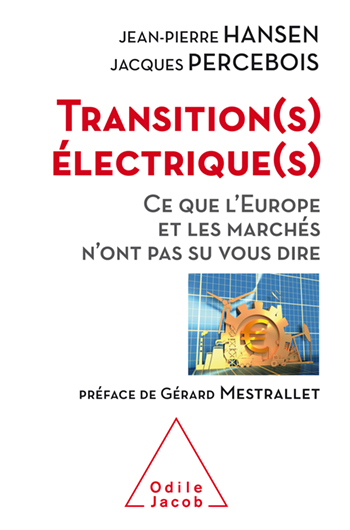
Jean-Pierre Hansen, Jacques Percebois
Electricity in Transition What Europe and the markets couldn’t tell you
The history of electricity as you’ve never heard it before. A genuine mini-guide to economic issues through the example of electricity: price formation, transmission costs, monopolies.
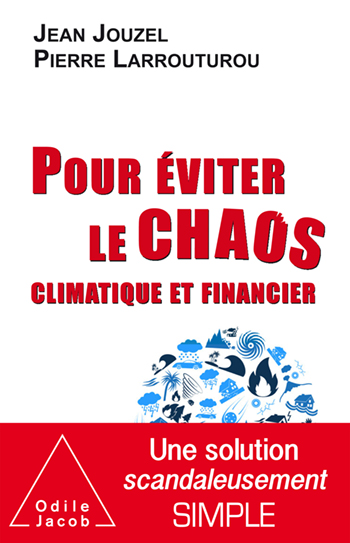
Jean Jouzel, Pierre Larrouturou
To avoid climate and financial chaos
America First! Donald Trump decided to pull the United States out of the Paris Agreement. Europa First! We want Europe to be the first to prove “grandeur nature,” to show that not only is safeguarding the climate not an obstacle to social well-being, but that the struggle against climate deregulation is a powerful means to fight against unemployment and insecurity.
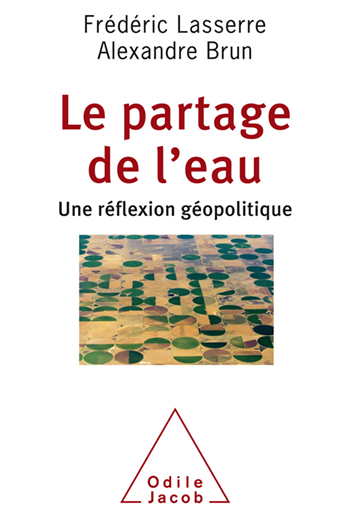
Frédéric Lasserre, Alexandre Brun
The Geopolitics of Water/Sharing Water Water – a source of conflicts
Water: a major geopolitical issue in the twenty-first century. Will it take “water wars” to impose an equitable distribution of resources?

